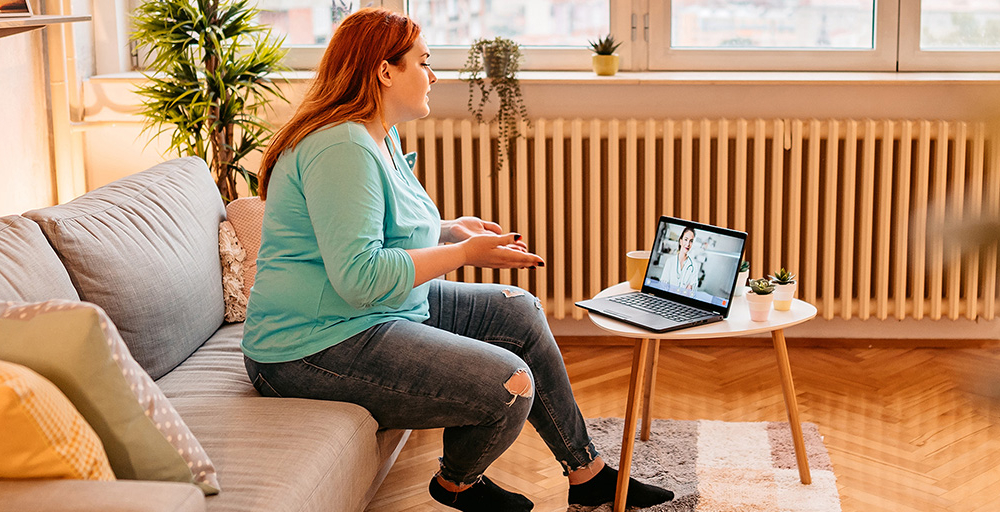Five common questions about seeing a psychologist answered
Your very first psychologist appointment can be a challenging experience to navigate, and it’s not unusual to feel anxious or nervous before your first few sessions.
Finding your way to a new place, learning how to log into a telehealth system, meeting someone new or not knowing what lies ahead can be daunting.
When you throw in the fact that you have to open up and talk about your current struggles and challenges, it can feel like a recipe for stress and anxiety.
But fear not! This blog will answer some of the most common questions that often crop up before you have a mental health counselling session.
It will cover the first steps to accessing the service, how to book an appointment and what you will receive in your welcome email.
It will also include some pointers to make sure your initial sessions go smoothly, whilst putting your mind at ease that your first session will be helpful and meaningful.
How to prepare for your first psychology appointment
So, what’s the first step to seeing a psychologist?
There are two main ways to get started with Access Psych: being referred to us or contacting us privately.
If you’re referred to us, it simply means a third party – such as a your GP or case manager – has told us you want to work with one of our psychologists.
Okay, so now that you have my details, how do I book an appointment with a psychologist near me?
Once we have received your details, our wonderful administration team will phone or email you to schedule an appointment.
With a range of options that suit you, we offer both telehealth psychology appointments and face-to-face psychology, counselling and therapy sessions at selected offices.
Our admin team will send you a welcome email which includes:
- Confirmation of your session time and clinic address (if applicable)
- A link for your telehealth session (if applicable)
- Consent form
- Intake form
- Depression, Anxiety and Stress Scale (DASS21)
We send these ahead of your first appointment to save time whilst you’re with your psychologist and to make best use of the 50-minute session.
The consent form provides details of how we store and share your information, explains the importance of an appropriate environment during a telehealth consultation, emergency contacts usage, our cancellation policy, and finally your consent to these policies.
The intake form is where you provide your personal details, nominate an emergency contact, provide your GP’s details and advise of your medical history, if you have any.
The Depression Anxiety and Stress Scale (DASS21) does what is says on the box – it consists of 21 questions asking about how you have been feeling, acting and thinking in the past two weeks.
It asks some challenging questions, but we encourage you to do your best to be honest. The screens for depression, anxiety and stress.
It’s also helpful to keep in mind that this is only one part of what makes up your psychologist’s impression of your current mental health concerns – it’s just a tool that gives your psychologist some insight into the best clinical style and therapeutic approach to suit your needs.
It’s also helpful to complete this questionnaire again in the future and compare scores to track your progress throughout the mental health counselling sessions.
I’ve booked my psychologist appointment, and completed the paperwork – do I need to make any other preparations before my session?
There are a few things that can help to ensure you have the best experience possible on the day of your appointment.
If you have a face-to-face appointment booked, you could take a drive to the office location to make sure you know where you’re going and what the parking situation is.
Alternatively, if you’re having a remote telehealth session, you could try to click the link in the email and check that it works on your phone or computer.
It’s also worth thinking about where you want your telehealth session to take place. You should try and find a quiet room or a corner of your home where you won’t be interrupted.
Finding a quiet space will not only stop you being interrupted, it will also help you talk openly and honestly with your psychologist, whilst helping them hear what you’re saying clearly.
If you have any trouble finding the office or logging onto the telehealth platform, don’t worry – you can phone our admin team for support, or your psychologist can help you on the day if needed.
Most importantly, it is recommended that you reflect on what is bringing you to therapy and the goals you wish to work towards with your therapist.
Click here to learn how to prepare for your telehealth psychology appointment.
Once I get to my first psychological therapy appointment, what are we going to talk about? Do I have to prepare something ahead of time?
The first time you meet your psychologist, the two of you will need to get to know each other a little.
Your psychologist will likely ask you about why you decided to come to your appointment and what challenges you have faced recently and historically.
They might also ask what you would like to get out of therapy, and then discuss some potential points of action to get the most out of your sessions.
You don’t need to prepare anything ahead of time unless you would like to. Your psychologist will ask questions, and give you a chance to explain your situation, and what you’d like to get out of therapy sessions. Take your time and share your thoughts. Above all, you can trust that your clinician has your best interests at heart.
Do I need to do anything in between my psychological therapy sessions?
After your first session finishes, it’s always good to take some time to reflect and let whatever you’ve discussed with your psychologist sink in.
Some people find it useful to take notes down after their session, either jotting down some questions for next time, or just summarising the session.
It can also be worth jotting down any questions to ask your psychologist for the next session, or any points of action that you need to complete in between psychological therapy sessions.
For others, keeping a mood tracker diary is a great way of monitoring feelings and emotions on a day-to-day and also long-term basis.
There are tonnes of sites that offer printable mood tracker diaries. Alternatively, you can download a diary as an app on your phone or laptop, or even make your own.
Mood tracker diaries are a great way to keep tabs on how you’re feeling. They’re also a good reference to have for your sessions, giving the psychologist an idea of your mental health for the previous week.
Your psychologist may also ask you to complete between session tasks to help you reach your goals. This is similar to seeing a physiotherapist or a personal trainer – they recommend exercises for you to complete between sessions to help you move towards your goals.
Book your first psychologist appointment with Access Psych
If you feel ready to seek the help of a psychologist, consider reaching out to Access Psych. With over 80 practitioners nationwide, we have a psychologist near you. We also offer telehealth options, making it easier than ever to access mental health support.
Alternatively, if you have any questions about Access Psych and what else we can do for you, visit our Frequently Asked Questions page.
When you’re ready, you can book an appointment online, speak to one of our friendly team on 1800 277 924 or email info@accesspsych.com.au.
The information provided in this Blog general in nature and is intended to be used for information purposes only. While we have tried to ensure the accuracy of the information published, no guarantee can be given that the information is free from error or omission or that it is accurate, current or complete.
The information published is not, and should not be relied on as, health or treatment advice. The diagnosis and treatment of any mental illness requires the attention of a physician or other properly qualified mental health professional. If you are seeking diagnosis or treatment of any other mental illness, you should consult a physician or mental health professional. You should not delay in seeking, or disregard, professional health advice because of something you have read in the Blog.








